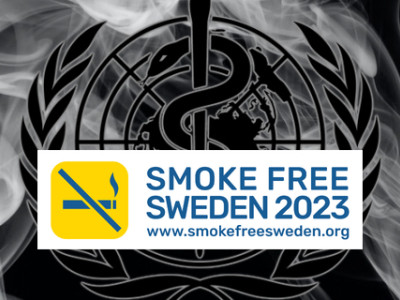The FSFW says: “The havoc wreaked by the COVID-19 pandemic is twofold: in addition to suffering direct effects of the virus, the world is grappling with the challenge of social distancing. The mental and physical toll of this practice may be particularly profound for millions of smokers who, as a way to cope with stress, have increased their tobacco intake.”
The recent poll explored the relationship between COVID-19 social distancing and health among 6,801 tobacco and nicotine users in 5 countries (United States, United Kingdom, Italy, South Africa, and India). Released today by the FSFW, the survey found that more than two thirds of the respondents rely on tobacco and nicotine as their main tool to manage stress and anxiety. Nearly 40% of smokers increased use of these products in recent weeks, which could equate to elevated use by more than 50 million smokers in the five countries polled.
“As governments begin to loosen social distancing guidelines, the mental and effects of lockdown are becoming apparent. Survey respondents consistently noted that social distancing had an adverse impact on their mental health (India, 35%; Italy, 29%, South Africa, 24%; UK, 39%; US, 43%), with many reporting concern about falling ill, being hospitalized, and managing stress and anxiety.”
The poll found that the negative effects on mental health were nearly twice as common among respondents who either tested positive for COVID-19 or lived with someone who had contracted the virus (India, 75%; Italy, 56%, South Africa, 45%; UK, 68%; US, 76%). The mental health impacts were also generally higher among women than men.
“When this pandemic curve subsides, there will be a heavy mental and physical toll on all people,” said Dr Derek Yach, president of the Foundation. “Prior to the COVID crisis, smokers were at greatest risk of lung cancer, chronic lung disease, and heart attacks. They will continue to have these excess risks as the pandemic recedes. Never forget that 7 million people will die globally this year as a result of their tobacco use.”
Survey respondents cited nicotine and tobacco as standard coping tools prior to the pandemic (US, 69%; UK, 68%; Italy, 48%; South Africa, 66%; India, 58%). As a result, many of these respondents either maintained or increased use of these products during stay-at-home orders (US, 57%; UK, 44%; Italy, 45%; South Africa, 64%; India, 74%). Higher rates of use were most prominent in countries where authorities had placed bans on the purchase of tobacco and alcohol (Indian and South Africa), which could suggest altered buying habits among respondents in those countries.
In fact, many combustible tobacco users reported a fear that stores would run out of their preferred product. This fear, coupled with anxiety that the lockdown would prevent users from going to the store, reportedly motivated cigarette smokers to stockpile tobacco products (US, 45%; UK, 38%; Italy, 33%; South Africa, 32%; India, 50%).
“Stay-at-home restrictions have provided insights into how we could support smokers to quit,” Derek Yach added. “We need to encourage them empathetically to move away from combustibles by educating them about patches, gum, and e-cigarettes that are less harmful than smoking, while making sure these tools are readily available. If we do that, smokers could exit the lockdowns with better prospects for their future health.”
These findings highlight the huge problem in governments across Europe refusing to allow vape shops to remain open during the COVID-19 lockdown.
The “COVID-19 State of Smoking Poll” was conducted online by Nielsen for the Foundation for a Smoke-Free World between 4/4/20 and 4/14/20. Survey respondents were regular smokers of combustible tobacco or users of nicotine vape products between the ages of 18-69 who lived in the United Kingdom, Italy, South Africa, India, New York and California.
Related:
- COVID-19 State of Smoking Poll – [link]
Dave Cross
Journalist at POTVDave is a freelance writer; with articles on music, motorbikes, football, pop-science, vaping and tobacco harm reduction in Sounds, Melody Maker, UBG, AWoL, Bike, When Saturday Comes, Vape News Magazine, and syndicated across the Johnston Press group. He was published in an anthology of “Greatest Football Writing”, but still believes this was a mistake. Dave contributes sketches to comedy shows and used to co-host a radio sketch show. He’s worked with numerous vape companies to develop content for their websites.
Join the discussion
Harm Reduction For The Rich
The United Kingdom risks becoming a harm reduction country only for the wealthy, according to Michael Landl of the World Vapers’ Alliance
CAPHRA Highlights Tobacco Control Flaws
The Coalition of Asia Pacific Tobacco Harm Reduction Advocates highlights the flaws in tobacco control which has led to the rise of black market in Australia
A Missed Opportunity at COP10
The Smoke Free Sweden movement says that COP10 was a missed opportunity to save millions of lives
COP10: Promote Tobacco Harm Reduction
Experts with Smoke Free Sweden are emphasising the urgent need for a Tobacco Harm Reduction approach at COP10












